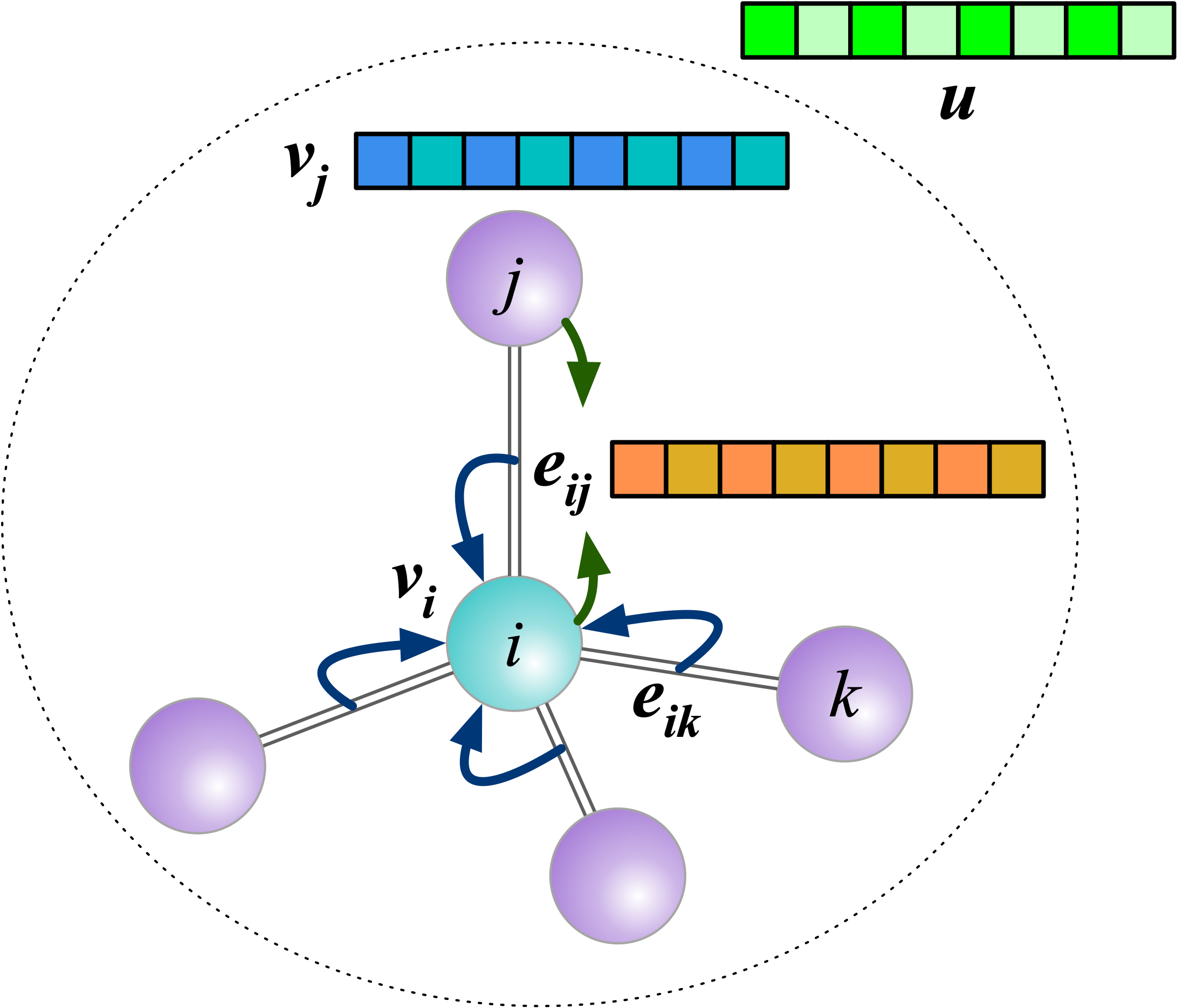Chi Chen1; Yunxing Zuo1; Jian Luo1; Shyue Ping Ong1*
1 Department of NanoEngineering, University of California, San Diego, 9500 Gilman Dr. Mail Code #0448, La Jolla, CA 92093-0448, USA

Figure 1. M3GNet architecture
Keywords:machine learning; materials discovery; universal potentials; batteries References
[1] Chen, C.; Ye, W.; Zuo, Y.; Zheng, C.; Ong, S. P. Chem. Mater. 2019, 31 (9), 3564–3572.
[2] Zuo, Y.; Qin, M.; Chen, C.; Ye, W.; Li, X.; Luo, J.; Ong, S. P. Materials Today, 2021, 51, 126–135.
[3] Chen, C.; Ong, S. P. Nat Comput Sci, 2022, 2 (11), 718–728.

Shyue Ping Ong is a Professor of NanoEngineering at the University of California, San Diego. He obtained his PhD from the Massachusetts Institute of Technology in 2011. He leads the Materials Virtual Lab at UCSD, a dynamic group of materials scientists focusing on the interdisciplinary application of materials science, computer science, and data science to accelerate materials design. He is one of the founding developers of the Materials Project, a DOE-funded initiative to make the computed properties of all known materials publicly available for materials innovation. He is also the founder of Python Materials Genomics (pymatgen), an open-source materials analysis library that is used by hundreds of thousands of users worldwide. Dr Ong is a recipient of the US Department of Energy Early Career Research Program and the Office of Naval Research Young Investigator Program awards and a Clarivate Highly Cited Researcher in 2021 and 2022.